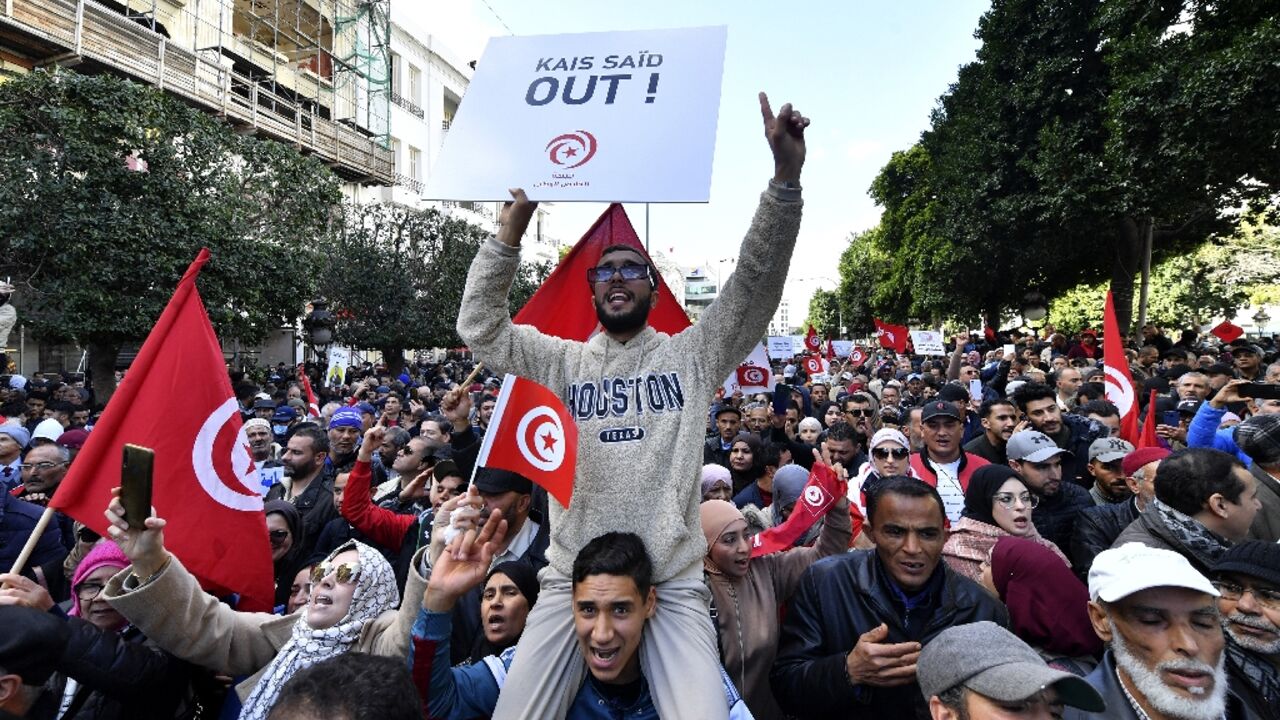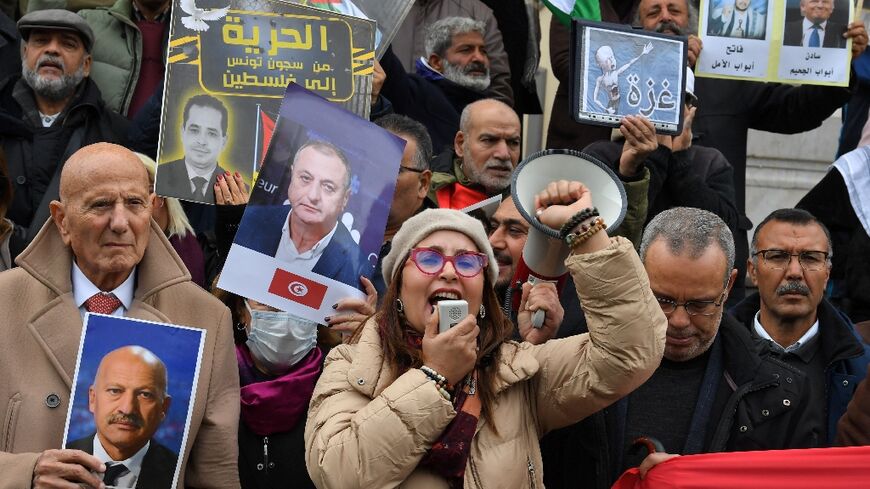Thousands protest Tunisian president amid grinding economic crisis

Thousands of Tunisians marched Saturday in the capital to protest against President Kais Saied, whom they accuse of seeking to install a new dictatorship amid a worsening economic crisis.
Separate rallies by different opposition groups were held in Tunis with a heavy police presence, AFP correspondents said.
Held on the 12th anniversary of the fall of dictator Zine El Abidine Ben Ali, they come against a backdrop of deepening political divisions and deteriorating economic conditions in the North African country.
"The people want what you don't want. Down with Saied," chanted protesters at the main demonstration, organised by Tunisia's biggest opposition force the National Salvation Front (FSN), which includes Saied's nemesis the Islamist-inspired Ennahdha party.
Ennahdha had dominated parliament until Saied launched a dramatic power grab on July 25, 2021, sacking the government and freezing parliament before appointing a new cabinet and ruling by decree.
Tunisians who largely supported Saied's 2021 takeover have become increasingly fed up with rising inflation and poverty, which now affects some 20 percent of the country's 12 million inhabitants, according to the government.
"The coup has brought us famine and poverty. Yesterday the grocer gave me just one kilo of macaroni and a can of milk," said Nouha, a woman at the main protest, amid shortages of basic goods.
"How can I feed my family of 13 people with that?" the 50-year-old housewife lamented.
Protesters at a separate left-wing march not far away denounced Saied's "authoritarian drift", which they say threatens the only democracy to have emerged from the Arab Spring revolts.
Some chanted slogans echoing the messages of the 2011 uprising and demanded "work", AFP correspondents said, as unemployment hovers above 15 percent.
- 'Unbearable shortages' -
Omar, 27, an unemployed former Saied supporter at the main National Salvation Front rally, said the president had "betrayed" Tunisians.
"And here is the result: an economic crisis, unbearable shortages, no milk in our fridges," said Omar, who asked to be identified by his first name only.
As the cash-strapped Tunisian state, which has a monopoly on certain imports, has faced difficulty bringing in basic goods, Tunisians have endured shortages of products including coffee, milk and sugar.
Struggling under debt worth around 80 percent of its gross domestic product, Tunisia reached an agreement in principle with the International Monetary Fund in mid-October for a bailout package worth around $2 billion, but it is still awaiting final approval.
Another march on Saturday, attended by hundreds of people, was led by Abir Moussi of the anti-Islamist opposition Free Destourian Party.
"Saied's regime" is responsible for the economic crisis, Moussi told the crowd, calling for his resignation.
A former law professor and political outsider, Saied in 2019 became Tunisia's second democratically elected president since Ben Ali's ouster.






